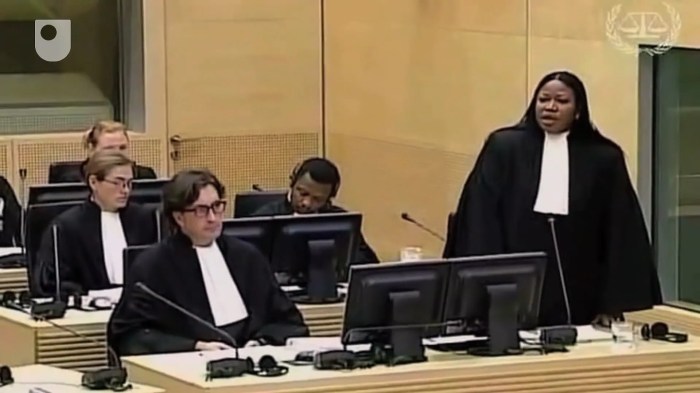
International criminal lawyers are the guardians of justice in a world where borders often blur and crimes transcend national boundaries. They navigate a complex web of international law, seeking accountability for the most heinous acts, from genocide and war crimes to crimes against humanity and transnational organized crime.
These legal professionals work tirelessly to ensure that perpetrators of these grave offenses are brought to justice, while upholding the rights of victims and advocating for a more just and equitable world. Their work often takes them to the heart of conflict zones and war-torn countries, where they face immense challenges and navigate sensitive political and cultural landscapes.
The Role of an International Criminal Lawyer

International criminal law is a complex and evolving field that deals with the most serious crimes of concern to the international community. International criminal lawyers play a crucial role in upholding justice and accountability for these crimes.
Responsibilities of an International Criminal Lawyer
International criminal lawyers have a wide range of responsibilities, including:
- Representing individuals accused of international crimes before international tribunals or national courts.
- Advocating for victims of international crimes and ensuring their rights are protected.
- Investigating and gathering evidence related to international crimes.
- Drafting legal documents and pleadings in international criminal cases.
- Providing legal advice to governments, international organizations, and other stakeholders on matters related to international criminal law.
Legal Frameworks Governing International Criminal Law
The legal frameworks governing international criminal law are based on a complex web of treaties, conventions, and customary international law. Some key legal instruments include:
- The Rome Statute of the International Criminal Court (ICC): This treaty established the ICC, the first permanent international court with jurisdiction to prosecute individuals for genocide, crimes against humanity, war crimes, and the crime of aggression.
- The Geneva Conventions: These conventions establish rules for the humane treatment of prisoners of war, civilians, and the wounded in times of armed conflict.
- The International Covenant on Civil and Political Rights: This treaty guarantees fundamental human rights, including the right to life, liberty, and security of person.
Examples of International Crimes and Tribunals
International criminal lawyers handle a wide range of cases involving various international crimes, including:
- Genocide: The deliberate and systematic destruction of a national, ethnic, racial, or religious group.
- Crimes against humanity: Widespread or systematic attacks against a civilian population, including murder, extermination, enslavement, deportation, torture, and sexual violence.
- War crimes: Grave breaches of the Geneva Conventions, such as wilful killing, torture, or inhuman treatment of prisoners of war or civilians.
- Crimes of aggression: The planning, initiation, or execution of an act of aggression by a state against another state.
International criminal lawyers often work with international tribunals, such as:
- The International Criminal Court (ICC): Based in The Hague, Netherlands, the ICC has jurisdiction over individuals accused of the most serious crimes of concern to the international community.
- The International Criminal Tribunal for the Former Yugoslavia (ICTY): Established to prosecute individuals responsible for serious violations of international humanitarian law in the former Yugoslavia.
- The International Criminal Tribunal for Rwanda (ICTR): Established to prosecute individuals responsible for the Rwandan genocide in 1994.
Final Review: International Criminal Lawyer

The work of international criminal lawyers is crucial in building a world where accountability for the most serious crimes is a reality. They serve as a vital force in upholding the rule of law, protecting human rights, and ensuring that victims of atrocities find justice. As the world continues to evolve and new challenges emerge, the role of international criminal lawyers will remain essential in shaping a more just and peaceful future.
General Inquiries
What is the difference between international criminal law and domestic criminal law?
International criminal law focuses on crimes that violate international norms and conventions, such as genocide, war crimes, and crimes against humanity, while domestic criminal law deals with crimes that violate the laws of a specific country.
What are some of the challenges faced by international criminal lawyers?
International criminal lawyers often face challenges such as gathering evidence in conflict zones, navigating different legal systems, and working with limited resources. They also face ethical dilemmas, such as balancing the rights of victims with the rights of the accused.
What are the career paths for international criminal lawyers?
International criminal lawyers can work for international organizations like the International Criminal Court (ICC), governments, non-governmental organizations (NGOs), or in private practice.
What are the qualifications needed to become an international criminal lawyer?
Typically, a law degree and specialization in international law, criminal law, or human rights law are required. Experience in international organizations, NGOs, or government agencies can be beneficial.




